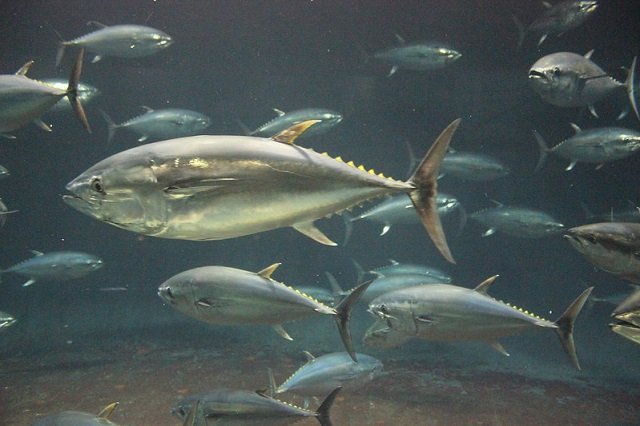Fish welfare should become a criterion in certification schemes. Training of staff in knowledge of the natural species-specific needs of the farmed fishes is a prerequisite to improve fish welfare along the whole life cycle, including humane slaughter. Operational indicators and protocols for farmers are needed, based on more publicly funded and published research and on development in cooperation with the industry. Farmers are dedicated, their doors are open for good advice. These are some of the main points the 28 participants from 11 countries agreed upon, in an open dialogue among experts from science, aquaculture, authorities and fish welfare NGOs, meeting in the first days of September at the northernmost coast of the Mediterranean.
Stakeholder dialogue is a basic principle of the organisers of the Summer Shoal, the fair-fish international association together with its Fish Ethology and Welfare Group. The participants profited from the special conference setting in one big circle under pine trees in a lodge at the beach of Marina Julia, Monfalcone, in northeastern Italy. This atmosphere was designed to tear down walls and build bridges between representatives of interests which are often perceived as antagonistic, in order to identify joint paths to improve fish welfare.
Continue reading and get the links to the textbook and to the videos of all sessions, including the discussions:
http://fishethobase.net/en/summer-shoal-2018/?edit_off
ANNOUNCEMENT: The Summer Shoal 2019 will take place at the Algarve, Portugal, in early September, co-organized by CCMAR.
Editor at the digital magazine AquaHoy. He holds a degree in Aquaculture Biology from the National University of Santa (UNS) and a Master’s degree in Science and Innovation Management from the Polytechnic University of Valencia, with postgraduate diplomas in Business Innovation and Innovation Management. He possesses extensive experience in the aquaculture and fisheries sector, having led the Fisheries Innovation Unit of the National Program for Innovation in Fisheries and Aquaculture (PNIPA). He has served as a senior consultant in technology watch, an innovation project formulator and advisor, and a lecturer at UNS. He is a member of the Peruvian College of Biologists and was recognized by the World Aquaculture Society (WAS) in 2016 for his contribution to aquaculture.







